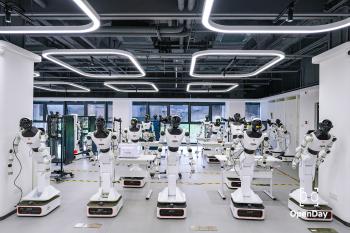Proof of Concept Grant by the European Research Council for light sensors
25.11.2022 - Dr. Mehmet Cengiz Onbasli of the Koç University was awarded a Proof of Concept Grant by the European Research Council (ERC) for his project titled “2D Topological Superconducting Single Photon Detector Devices (SuperPhoton)”.
Onbaşli and his team consisting of 12 highly skilled researchers aim to produce and commercialize new ultra-sensitive quantum light sensors, which are critical for the success and proliferation of quantum computers and quantum internet technology, which are among the most important research fields for the 21st century. Using the superconducting magnetic topological insulator materials, they have developed, the team measures the smallest particles of light at extremely low temperatures. With the high-quality production of these functional materials, they aim to commercialize an infrastructure which can act as a pre-pilot production site for Europe and the rest of the world.
Stating that the materials and the sensor mechanism to be used in the project will be a first in the world, Dr. Mehmet Cengiz Onbaşlı remarked that these differ from the previously developed superconducting single-photon detectors in that higher quantum efficiency and faster speeds might be obtained through the use of thin layers called novel magnetic topological insulator, which are several atoms thick. Onbaşli added that his team has also developed a new mechanism for the measurement of single light particles, in other words, photons. Dr. Onbaşlı and his team determined the new topological materials and single photon detector designs for ultrafast response and near-perfect efficiencies. The development of these components and their an order of magnitude reduction in their cost could pave the way to ubiquitous quantum internet applications. Improved efficiencies of the detectors might also improve optical quantum computers and their efficiencies.
Contact
Koç University
Rumelifeneri Yolu
34450 Sarıyer, İstanbul
Turkey







